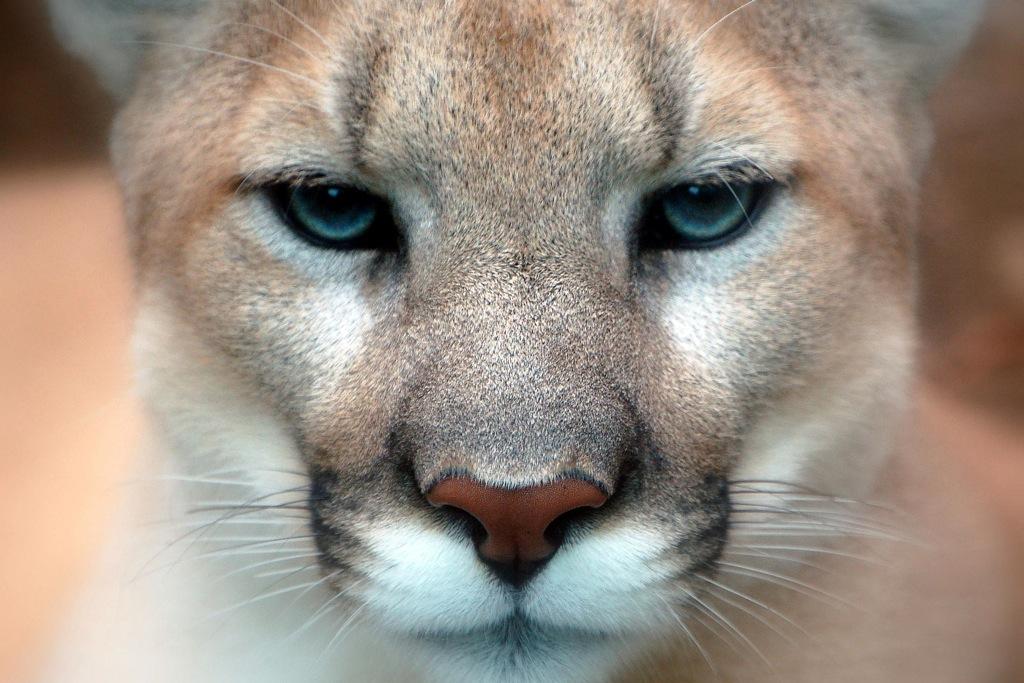31 big furry predators that desperately need your help
Lions, tigers, and bears seem like they can take care of themselves, right? Big teeth, big claws, top of the food chain, the whole deal.
Not so easy, scientists say. A new study published this week in Science tells us that 31 big predators need more protection than they are getting. Three-quarters of them are losing population, and 61 percent are listed as "threatened" by the International Union for Conservation of Nature.
And they are being pushed out of their homes. Lions now only roam 17 percent of the land they once did. The Eurasian lynx has lost almost all of its territory.
These predators deserve to be protected for their own sakes, but they also play vital roles in their ecosystems. As lions disappear in West Africa, for example, baboon populations are exploding (and baboons basically destroy everything, everywhere). The loss of large predators can change environments in unpredictable ways, because, as the researchers write in Science, "we have only just begun to understand the influences of these animals in the fabric of nature."
So here are the 31 big furry predators that need our help, grouped by their biological families: Canidae, Felidae, Mustelidae, Ursidae, and Hyaenidae.
1) Gray wolf (Canis lupus)
![]()
(John Moore/AFP/Getty Images)
2) Red Wolf (Canis rufus)
![]()
(Tony Alter/Wikimedia Commons)
3) Maned Wolf (Chrysocyon brachyurus)
![]()
(Rapha-Hëll/Wikimedia Commons)
4) African Wild Dog (Lycaon pictus)
![]()
(Philip Gabrielsen/Wikimedia Commons)
5) Dhole (Cuon alpinus)
![]()
(gailhampshire/Wikimedia Commons)
6) Dingo (Canis dingo)
![]()
(William West/AFP/Getty Images)
7) Ethiopian Wolf (Canis simensis)
![]()
(James Hopkirk/Flickr CC)
8) Tiger (Panthera tigris)
![]()
(AFP/Getty Images)
9) Lion (Panthera leo)
![]()
(AFP/Getty Images)
10) Jaguar (Panthera onca)
![]()
(Noah Seelam/AFP/Getty Images)
11) Cheetah (Acinonyx jubatus)
![]()
(AFP/Getty Images)
12) Leopard (Panthera pardus)
![]()
(Cameron Spencer/Getty Images)
13) Puma (Puma concolor)
![]()
(Wikimedia Commons)
14) Snow Leopard (Panthera uncia)
![]()
(Lucas Dawson/Getty Images)
15) Clouded Leopard (Neofelis nebulosa)
![]()
(Spencer Wright/Flickr CC)
16) Sunda Clouded Leopard (Neofelis diardi)
![]()
(Spencer Wright/Flickr CC)
17) Eurasian Lynx (Lynx lynx)
![]()
(David Casto/Wikimedia Commons)
18) Sea Otter (Enhydra lutris)
![]()
(Joe Robertson/Wikimedia Commons)
19) Giant Otter (Preronura brasiliensis)
![]()
(Eric Gaba/Wikimedia Commons)
20) Cape Clawless Otter (Aonyx capensis)
![]()
(Mark Paxton/Wikimedia Commons)
21) Polar Bear (Ursus maritimus)
![]()
(PAUL J. RICHARDS/AFP/Getty Images)
22) Brown Bear (Ursus arctos)
![]()
(AFP/Getty Images)
23) Giant Panda (Ailuropoda melanoleuca)
![]()
(AFP/Getty Images)
24) American Black Bear (Ursus americanus)
![]()
(Ken Thomas/Wikimedia Commons)
25) Andean Bear (Tremarctos ornatus)
![]()
(Ltshears/Wikimedia Commons)
26) Asiatic Black Bear (Ursus thibetanus)
![]()
(Wikimedia Commons)
27) Sloth Bear (Melursus ursinus)
![]()
(Andreas März/Wikimedia Commons)
28) Sun Bear (Helarctos malayanus)
![]()
(Sakurai Midori/Wikimedia Commons)
29) Spotted Hyena (Crocuta crocuta)
![]()
(Wikimedia Commons)
30) Brown Hyena (Hyaena brunnea)
![]()
(Wikimedia Commons)
31) Striped Hyena (Hyaena hyaena)
![]()
(Wikimedia Commons)
